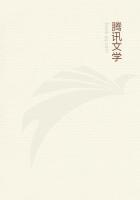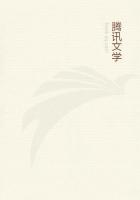Exaggeration is in the course of things. Nature sends no creature, no man into the world, without adding a small excess of his proper quality. Given the planet, it is still necessary to add the impulse; so, to every creature nature added a little violence of direction in its proper path, a shove to put it on its way; in every instance, a slight generosity, a drop too much. Without electricity the air would rot, and without this violence of direction, which men and women have, without a spice of bigot and fanatic, no excitement, no efficiency. We aim above the mark, to hit the mark. Every act hath some falsehood of exaggeration in it. And when now and then comes along some sad, sharp-eyed man, who sees how paltry a game is played, and refuses to play, but blabs the secret; -- how then? is the bird flown? O no, the wary Nature sends a new troop of fairer forms, of lordlier youths, with a little more excess of direction to hold them fast to their several aim; makes them a little wrongheaded in that direction in which they are rightest, and on goes the game again with new whirl, for a generation or two more. The child with his sweet pranks, the fool of his senses, commanded by every sight and sound, without any power to compare and rank his sensations, abandoned to a whistle or a painted chip, to a lead dragoon, or a gingerbread-dog, individualizing everything, generalizing nothing, delighted with every new thing, lies down at night overpowered by the fatigue, which this day of continual pretty madness has incurred. But Nature has answered her purpose with the curly, dimpled lunatic. She has tasked every faculty, and has secured the symmetrical growth of the bodily frame, by all these attitudes and exertions, -- an end of the first importance, which could not be trusted to any care less perfect than her own. This glitter, this opaline lustre plays round the top of every toy to his eye, to ensure his fidelity, and he is deceived to his good. We are made alive and kept alive by the same arts. Let the stoics say what they please, we do not eat for the good of living, but because the meat is savory and the appetite is keen. The vegetable life does not content itself with casting from the flower or the tree a single seed, but it fills the air and earth with a prodigality of seeds, that, if thousands perish, thousands may plant themselves, that hundreds may come up, that tens may live to maturity, that, at least, one may replace the parent. All things betray the same calculated profusion. The excess of fear with which the animal frame is hedged round, shrinking from cold, starting at sight of a snake, or at a sudden noise, protects us, through a multitude of groundless alarms, from some one real danger at last.
The lover seeks in marriage his private felicity and perfection, with no prospective end; and nature hides in his happiness her own end, namely, progeny, or the perpetuity of the race.
But the craft with which the world is made, runs also into the mind and character of men. No man is quite sane; each has a vein of folly in his composition, a slight determination of blood to the head, to make sure of holding him hard to some one point which nature had taken to heart. Great causes are never tried on their merits; but the cause is reduced to particulars to suit the size of the partizans, and the contention is ever hottest on minor matters. Not less remarkable is the overfaith of each man in the importance of what he has to do or say. The poet, the prophet, has a higher value for what he utters than any hearer, and therefore it gets spoken.
The strong, self-complacent Luther declares with an emphasis, not to be mistaken, that "God himself cannot do without wise men." Jacob Behmen and George Fox betray their egotism in the pertinacity of their controversial tracts, and James Naylor once suffered himself to be worshipped as the Christ. Each prophet comes presently to identify himself with his thought, and to esteem his hat and shoes sacred. However this may discredit such persons with the judicious, it helps them with the people, as it gives heat, pungency, and publicity to their words. A similar experience is not infrequent in private life. Each young and ardent person writes a diary, in which, when the hours of prayer and penitence arrive, he inscribes his soul.
The pages thus written are, to him, burning and fragrant: he reads them on his knees by midnight and by the morning star; he wets them with his tears: they are sacred; too good for the world, and hardly yet to be shown to the dearest friend. This is the man-child that is born to the soul, and her life still circulates in the babe. The umbilical cord has not yet been cut. After some time has elapsed, he begins to wish to admit his friend to this hallowed experience, and with hesitation, yet with firmness, exposes the pages to his eye.
Will they not burn his eyes? The friend coldly turns them over, and passes from the writing to conversation, with easy transition, which strikes the other party with astonishment and vexation. He cannot suspect the writing itself. Days and nights of fervid life, of communion with angels of darkness and of light, have engraved their shadowy characters on that tear-stained book. He suspects the intelligence or the heart of his friend. Is there then no friend?
He cannot yet credit that one may have impressive experience, and yet may not know how to put his private fact into literature; and perhaps the discovery that wisdom has other tongues and ministers than we, that though we should hold our peace, the truth would not the less be spoken, might check injuriously the flames of our zeal. A man can only speak, so long as he does not feel his speech to be partial and inadequate. It is partial, but he does not see it to be so, whilst he utters it. As soon as he is released from the instinctive and particular, and sees its partiality, he shuts his mouth in disgust.















